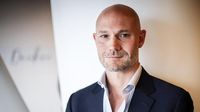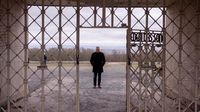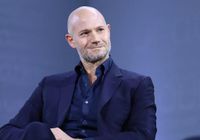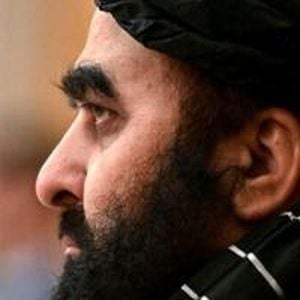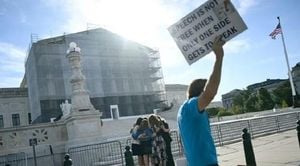In a significant development surrounding the 80th anniversary of the liberation of the Buchenwald concentration camp, the Buchenwald memorial has retracted its invitation to Israeli-German philosopher Omri Boehm to deliver a speech at the upcoming memorial service. This decision, reported to be influenced by pressure from the Israeli government, has sparked controversy and raised questions about the intersection of memory, politics, and historical discourse.
The memorial service is scheduled for April 6, 2025, in Weimar, Germany, and marks the solemn commemoration of a pivotal moment in history—the liberation of Buchenwald by U.S. troops on April 11, 1945. Jens-Christian Wagner, the director of the Buchenwald and Mittelbau-Dora memorial sites, confirmed the withdrawal of Boehm's invitation, citing a conflict between the memorial and representatives of the Israeli government.
Wagner expressed his regret over the situation, emphasizing that the invitation to Boehm had inadvertently placed Holocaust survivors attending the ceremony in a difficult position. He stated, "I wanted to protect the arriving survivors from being drawn into the dispute and potentially being instrumentalized in the worst case." This sentiment highlights the delicate balance between honoring the victims of the Holocaust and navigating contemporary political tensions.
Omri Boehm, who teaches in New York and has Holocaust survivors among his ancestors, has gained recognition for his critical stance toward the Israeli government and its memorial culture. His writings and theories have generated both acclaim and controversy internationally. In 2024, he received the Leipzig Book Award for European Understanding for his book "Radical Universalism. Beyond Identity," where he argues for a binational Jewish-Palestinian federal state, asserting that a two-state solution is unfeasible.
The Israeli embassy responded sharply to the initial invitation extended to Boehm, labeling the decision as "not only outrageous but a blatant insult to the memory of the victims." A spokesperson for the embassy criticized Boehm for allegedly describing Yad Vashem, Israel's official memorial to the victims of the Holocaust, as an instrument of political manipulation and for comparing the Holocaust to the Nakba, the Palestinian term for the displacement that accompanied the establishment of Israel in 1948.
"If the memory of the murdered is to be distorted and defiled, we will not look away," the spokesperson stated, confirming that discussions had taken place with the Buchenwald memorial regarding the invitation. This exchange underscores the sensitivity surrounding Holocaust remembrance and the potential for differing narratives to clash.
Despite the withdrawal of Boehm's invitation, the memorial service will proceed with other notable speakers, including Thuringia's Minister President Mario Voigt from the Christian Democratic Union (CDU) and former Federal President Christian Wulff. Wagner expressed hope that Boehm would still be able to present his lecture at a later date, reaffirming his respect for Boehm's integrity and scholarly contributions.
The upcoming commemoration is not only a remembrance of the atrocities committed during the Holocaust but also a reflection on how these memories are preserved and interpreted in contemporary society. The Buchenwald concentration camp, established in July 1937, saw the deportation of over a quarter of a million people from more than 50 countries, with around 56,000 not surviving the camp's horrors.
As the memorial service approaches, the atmosphere is charged with heightened emotions, particularly among survivors and their families. The decision to withdraw Boehm's invitation serves as a reminder of the complexities involved in Holocaust remembrance, especially when political views intersect with historical narratives.
Wagner reiterated the importance of ensuring that the focus of the memorial remains on the survivors and the memory of those who perished. He stated, "The primary goal is to hold a commemorative event in memory of the Buchenwald and Mittelbau-Dora concentration camps, where the survivors are at the center, not an externally initiated debate." This commitment to survivor-centered remembrance reflects a broader trend in memorial culture, emphasizing the need for sensitivity and respect.
In light of these developments, the Buchenwald memorial stands at a crossroads, balancing the need for honest discourse about history with the imperative to honor the memories of those who suffered. As the event approaches, it remains to be seen how this situation will evolve and what implications it may have for future commemorations.
